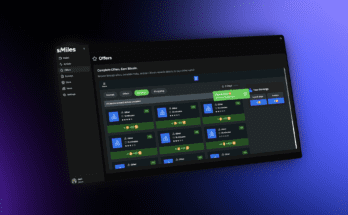In recent years, sustainability has become a critical concern for educational institutions globally. Pures College has emerged as a leader in this area, implementing green initiatives that extend beyond mere environmental conservation. These initiatives are designed not only to reduce the campus’s ecological footprint but also to enrich the academic and social environment for its students.
Driving Sustainability on Campus
At Pures College, sustainability is more than just a policy; it is a practice ingrained in the daily life of the college and its community. The college’s comprehensive approach to sustainability encompasses various dimensions, from energy consumption and waste management to incorporating sustainability into the curriculum.
Energy Efficiency and Renewable Resources
One of the cornerstone initiatives has been the transition to renewable energy sources and the implementation of energy-efficient practices across campus. Solar panels and wind turbines can be seen around the campus, which not only serve as power sources but also as practical teaching tools for students studying environmental science and engineering. Moreover, the buildings on campus are equipped with smart sensors to optimize energy consumption, significantly reducing the college’s carbon footprint.
Waste Reduction and Recycling Programs
Pures has developed an extensive waste management system that emphasizes reduction, reuse, and recycling. The college has set up numerous recycling stations around the campus and uses compostable materials in its cafeterias. These efforts are complemented by educational campaigns that teach students the importance of waste reduction and proper segregation techniques, fostering a culture of sustainability.
Enhancing Educational Outcomes Through Sustainability
Integrating sustainability into the academic curriculum has allowed Pures to provide a richer, more diverse educational experience. Students are not only learning about sustainability in theory but are also applying these concepts in real-world contexts.
Curriculum Integration
Sustainability is woven into the curriculum across various disciplines. For example, business students learn about sustainable business practices and corporate responsibility, while architecture students explore eco-friendly building designs. This interdisciplinary approach ensures that all students, regardless of their major, graduate with a solid understanding of sustainability issues and solutions.
Hands-on Learning and Research
Pures College encourages hands-on learning through participation in sustainability projects and research. Students have opportunities to work on real projects such as designing sustainable campuses or developing new recycling technologies. These projects not only enhance learning but also allow students to make tangible contributions to sustainability, preparing them for future careers in this critical field.
Social and Community Impact
The green initiatives at Pures have had a profound impact not only on the environment and education but also on the college community and beyond.
Fostering a Community of Care
The sustainability efforts have helped foster a strong sense of community and shared responsibility among students, faculty, and staff. This is evident in numerous student-led initiatives, such as the campus garden, which supplies fresh produce for the college cafeteria and local food banks. Such activities not only promote environmental awareness but also build leadership and teamwork skills among students.
Extending Impact Beyond Campus
The influence of Pures’ sustainability initiatives extends beyond its own campus. The college collaborates with local businesses and community organizations on environmental projects, enhancing the regional approach to sustainability. These partnerships not only amplify the impact of the college’s efforts but also strengthen the community’s overall environmental consciousness.
Challenges and Future Directions
Despite the successes, the road to a fully sustainable campus is fraught with challenges. Issues such as funding new sustainability projects and updating older infrastructure to greener standards are ongoing. However, Pures College remains committed to its green initiatives and is constantly exploring innovative solutions to these challenges.
Leveraging Technology
Emerging technologies like AI and big data are being considered to further enhance sustainability on campus. These technologies could potentially provide better data on energy use, waste generation, and resource management, allowing for more precise adjustments to sustainability strategies.
Continuous Improvement
Pures is dedicated to continuously improving its sustainability initiatives. This involves regular assessment of current practices and staying abreast of new sustainability trends and technologies. The college is committed to adapting and evolving its strategies to ensure they meet the highest standards of environmental stewardship.
Conclusion
The green initiatives at Pures College are a testament to the institution’s commitment to sustainability and education. By integrating these practices into every facet of campus life, the college not only contributes to environmental conservation but also enhances the educational experience for its students, preparing them to be conscientious leaders in a rapidly changing world. As Pures College continues to build on these initiatives, it sets a benchmark for others in the educational sector to follow, highlighting the critical role of educational institutions in leading global sustainability efforts.



